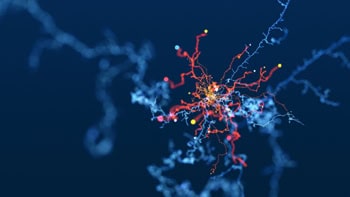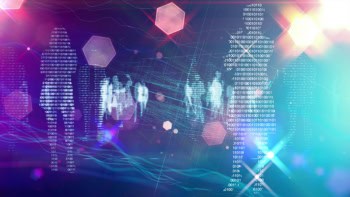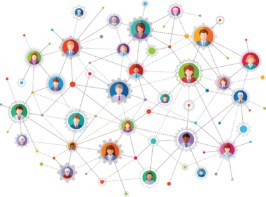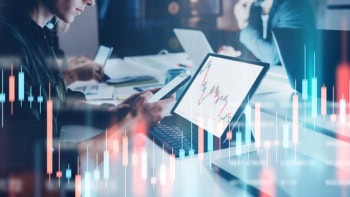Z Aziza Baccouche is chief executive of Aziza Productions, a media company that specializes in producing science films
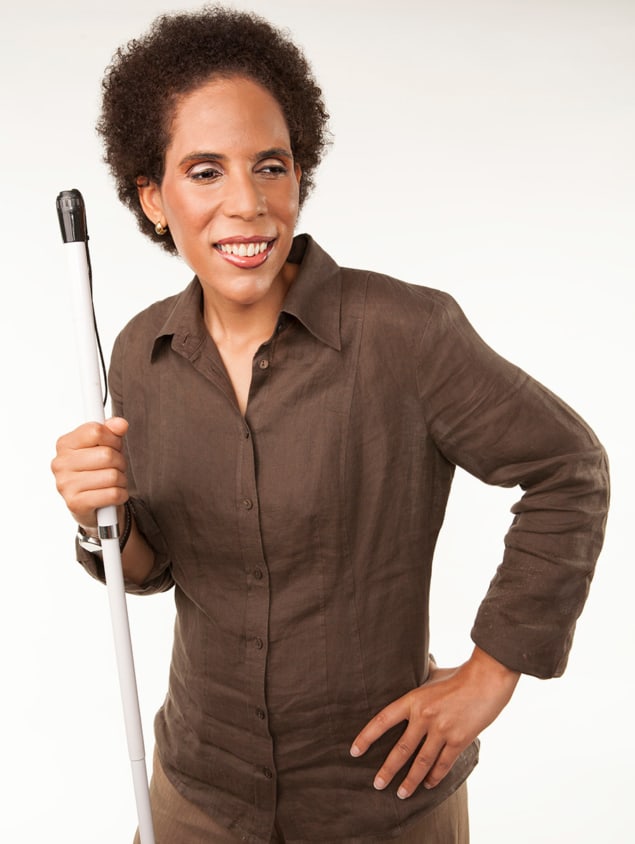
What sparked your interest in physics?
I’ve always had a passion for maths, but I lost most of my sight when I was nine years old. I grew up in Tunisia and went to a blind school there for a few years before my parents decided to come back to the US. My mom is African-American and my dad is from Tunisia. When we came to the US, I went to a regular high school and in my senior year I took physics and immediately fell in love with the subject. I had a fantastic teacher who never saw my physical limitations in terms of my sight. He never said “Oh no you can’t do this lab,” or “You shouldn’t do physics,” and this was crucial. I was a young person and I knew I would have to prove myself as a legally blind person.
What were some of the challenges you faced as a blind person in physics?
It was when I went to the College of William and Mary in Virginia to study physics that I really encountered difficulties. For the first time I found it tough trying to make my coursework accessible to me. I was the first blind person to study physics there so the books weren’t on tape, I had to find readers to record the coursework. There seemed to be all of these issues that I had to worry about that my colleagues didn’t even think about. This puts you a little behind. My peers could just pick up a book or go to the library to get information while I didn’t have that flexibility. As I would be listening to audio, something like turning back to page 10 wasn’t as easy for me as it was for a sighted person. This forced me to memorize as much as I could. I would memorize all the formulae and equations and in the long term this made physics easier for me. I think the biggest thing though was dealing with other people’s perceptions about what blind people can and can’t do. The first thing that people see is my disability. After that, they notice that I am a woman and also African-American so it’s like a three-strike situation. This was the reality, especially as I was in a predominantly white male department, so it was really hard for me to feel like I belonged. But I had a drive that came from within me – an ability to envision possibility.
How did you get into media and films?
When I was doing my PhD at the University of Maryland I applied for an American Physical Society Mass Media Fellowship, and when I got it, it was the most fantastic experience. They assigned me to CNN in Atlanta. Although the programme was meant to be only 10 weeks, I ended up doing more than three months and I even took a semester off my PhD because I wanted to focus on the fellowship. I had the opportunity to learn all about science communication and I found that I was really interested in the media. People often assume that as a blind person, you would not want to be in front of the camera, but that was what interested me most, along with producing media content. My time at CNN was great and I even got to meet then chief executive Tom Johnson. He was on the advisory board of the School of Journalism in Maryland and he took me under his wing. When the fellowship ended I continued to produce out of the Washington bureau, where I was a special science correspondent. I was the first blind on-air producer for the network and I really wanted to show that it didn’t take sight to do this. Who cares if my eyes don’t align properly to the camera lens – you should be paying attention to the content I am delivering. I then set up Aziza Productions, making short films for science-based non-profit organizations and focusing on minority communities in science.
Was it hard finding work after your fellowship?
As blind people we have to be part of changing the attitude that the general public has about us. Even today in the US, 70% of working-age blind people are unemployed. This is something I dealt with when I came out of my PhD and was trying to find work. You may have the credentials and the necessary skills and experience, but unfortunately people just see the blindness. There are many environments where people aren’t used to seeing blind people – physics was one and television was another. People think that it takes vision to do the work, but you could say that about any job. For me vision is a mindset, an attitude, and for that I don’t need sight. Of course it has been challenging and there have been roadblocks, but I have managed just fine without sight. I hope that my story inspires others with disability, especially in physics. The main barrier is dealing with people, not doing the physics.
How has your physics background been helpful in your media work?
I’m passionate about science and I love talking about it. My physics training helps me better communicate it because you have to understand it in order to effectively explain it to the general public. I also love working with people and storytelling, so journalism was an obvious path, but science was my first love.
What are you working on now?
I’m working on a documentary film called Seeking Vision. It’s about overcoming odds and not being able to see with your eyes. A little over 10 years ago I had my fifth brain operation and because I knew I wanted to produce a film that will connect with people, I had my camera crew in the operating room filming for nearly three hours of a seven-hour surgery. Although the hospital was worried about liabilities, my neurosurgeons allowed it. I want to show the reality of being blind and that we can do more than answer phones.
Do you have any advice for today’s students, especially those with any disabilities?
I like referring to the concept of disabilities as “different abilities”. I tell my sighted colleagues that while they see with their eyes, I do the same with my fingers while reading braille and with my ears while listening to audio. What drives me is my vision and my goals, both of which come from within. It’s important to know who you are and what you are capable of, so hold on to that vision.
